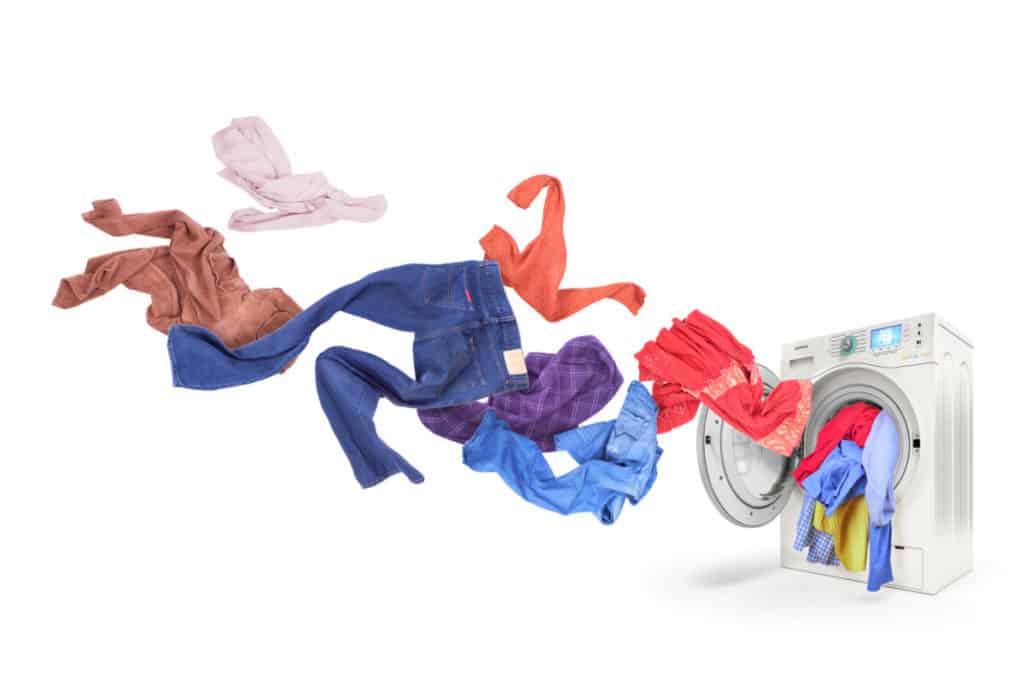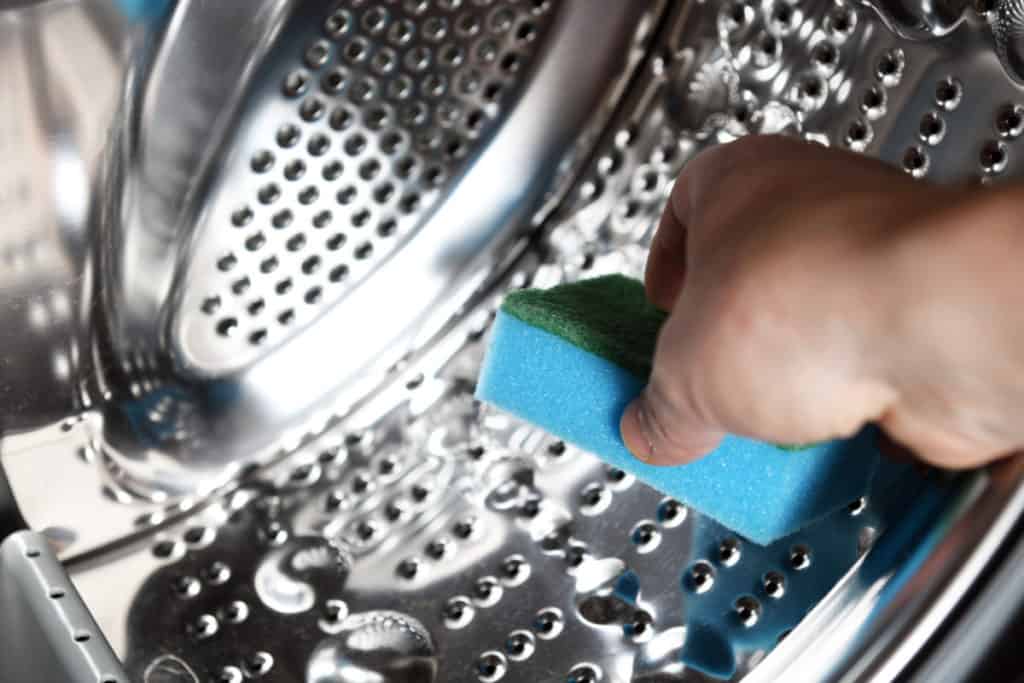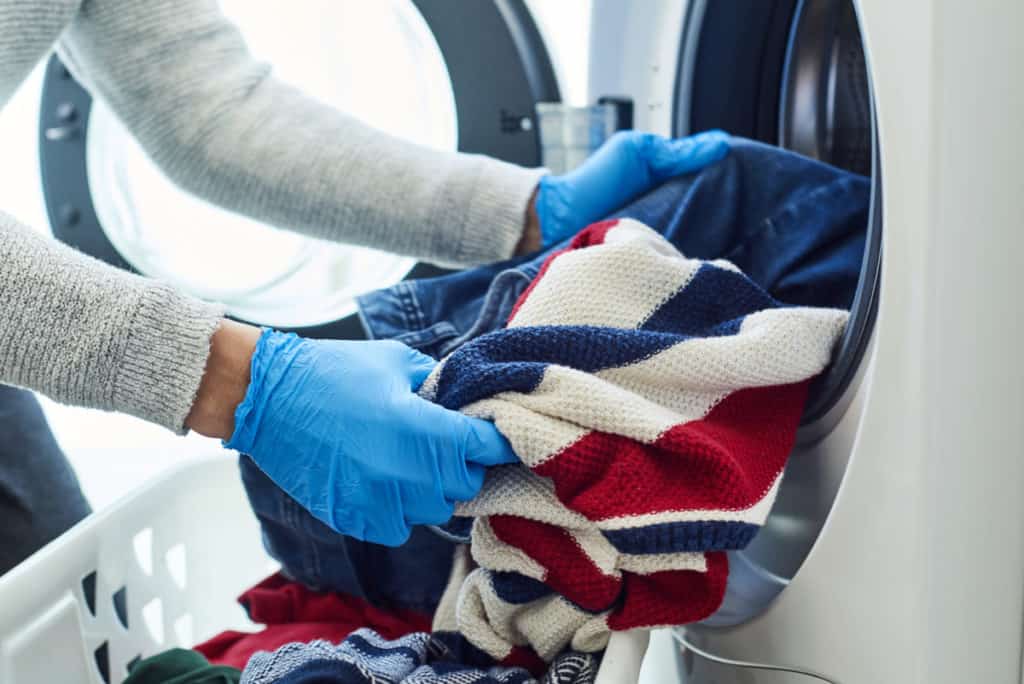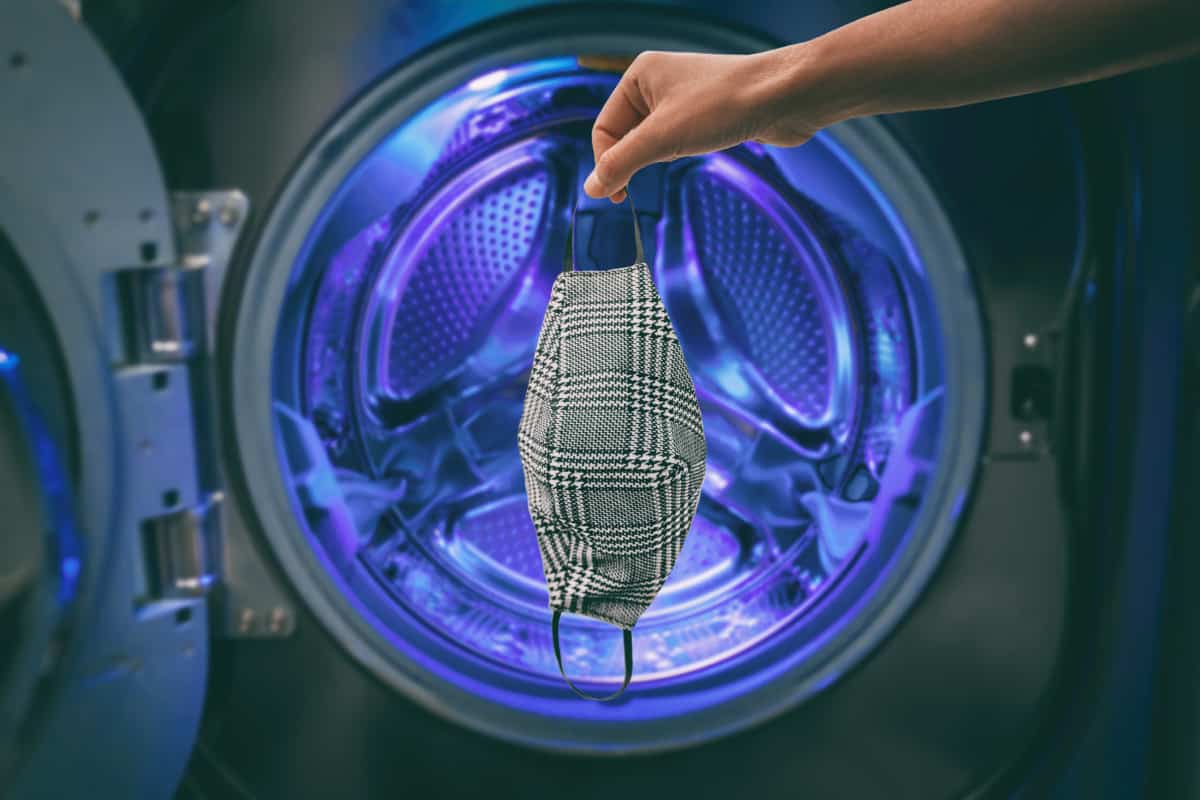Workaholic people usually delay laundry for a whole week. This gives bacteria a chance to grow and survive. Pandemic and several disorders have made us more conscious of hygiene. This made people believe that bacteria stays on clothes even after washing the clothes. Can bacteria actually survive after a clothes wash?
Yes. Bacteria and other germs survive, and they do not get removed from the clothes unless you disinfect them or wash the clothes with very hot water and bleach.
With that said, I will be clearing your confusion regarding bacteria on your clothes. What illnesses can bacteria cause? And how to disinfect clothes? You will know all that and much more in this article.
Can Bacteria Survive After a Clothes Wash?
Yes, bacteria can survive after washing clothes. However, this largely depends upon the way you do laundry. If your laundry lacks a certain water temperature and bleach, there are chances that your clothes are still contaminated with bacteria.
There are a number of reasons for bacteria to survive. Let us see each one of them.
Washing Machine
While many weak viruses, fungi, and bacteria get killed during the washing process, many still survive. Energy-efficient washing machines are likely to contain more germs than any other washing machine. Since clothes get washed at lower temperatures in energy-efficient washers, the chances of bacterial survival are higher.
However, the concentration of bacteria is not high enough to cause an infection or disorder. Simply cleaning the washing machine from the inside every week makes it safe for washing clothes.

Patients’ Clothes
In case there is an infectious person at your house, chances are higher that bacteria or other germs can get transferred from their clothes to yours.
When you wash an infectious person’s clothes with others, the bacteria can easily travel and contaminate the rest of the clothes.
Sometimes people do not change the water after the first load. They keep on adding more clothes to it. The highly contaminated water becomes the source of germs spread.
Children’s Clothes
If you have a child, you can tell from the appearance of their clothes that they are dirtier than that of an adult’s clothes in the house. Since children play in dirty places, mud and grass stains are the normal thing found on their clothes.
Due to this reason, the number of bacteria on children’s clothes can be significantly high. Their clothes might be loaded with germs, and you might have no idea about it.
How to Kill Bacteria from Clothes While Washing?
Usually, people do not learn the process of laundry from experts. It is a daily life skill that we usually learn from our parents or roommates. The practice of laundry carried out by the previous generation has changed a lot. The laundry method and products have been upgraded to the extent that they work like magic.
For this reason, people usually do not know that their clothes are contaminated with bacteria. Now that you know this, I came up with a solution to this problem. You can implement some simple laundry tips while washing clothes to get rid of bacteria.
Clean Your Washing Machine

This is a common myth that a washing machine should not be washed as it gets clean when you throw in water and detergent to do laundry. This is so not true.
Cleaning the washing machine helps you get rid of bacteria and all the germs that are left by the dirty laundry. Cleaning the washer is really important, especially when you wash clothes at low water temperatures, such as in an energy-efficient washer.
The best way to clean washing machine is to run it with water and bleach inside. This method ensures that all the bacteria are killed. Also, make sure to disinfect the outer side of your washer every week.
Sanitize the Hamper
It is also important to sanitize the hamper with disinfectant. You can spray it on the hamper. This will instantly kill the germs if there are any. Fewer bacteria means less illness.
Dry Clothes at High Heat Setting
It is always recommended to dry your clothes at a high temperature for at least 45 minutes. This kills most of the bacteria on the clothes. When you dry clothes at a low heat setting, chances are higher that many bacteria will survive. This is why high heat is preferred.
Hang Clothes in the Sun

Sunlight is the most effective method of killing germs. Ultraviolet light from the sun acts as a natural sanitizer against bacteria. Hanging clothes in sunlight is really beneficial to kill germs.
However, this method has a drawback. Hanging clothes outdoor may pick pollen from the air. This will be harmful to you if you are allergic to pollens.
Wash Clothes in Bleach
Adding bleach to the water-containing white clothes really helps in cleaning. In the case of colored clothes, you can use laundry sanitizer to add to the washer. It will help kill bacteria, especially when you are washing at low water temperatures.
The sanitizer is usually added to the fabric softener compartment. If you like to wait, you can put it during the rinse cycle into the machine.
You also need to be aware of the amount of detergent to be added to the washer. It needs to be minimum as a lot of soap can get stuck in your clothes. This provides bacteria with the house to grow. Therefore, it is better to avoid adding a lot of soap to the washer.
Wash Clothes in Hot Water
Hot temperature kills bacteria and other germs. That is why hot water is the best solution to these bacteria growing on your clothes. Since bacteria can survive low heat easily, it is recommended to do laundry at a high temperature. It is also beneficial in removing dirt completely from clothes.
Wash Dirty Clothes Separately
Some garments like underwear and children’s clothes should be washed separately as they contain more dirt and thus bacteria than usual.
If anyone in the house plays outdoor games or does workout, it is advised to wash their clothes separately. These already dirty clothes are likely to contaminate the other garments.
You should also change the water before adding the next load as water also gets contaminated with bacteria.
Wash Your Hands
Since laundry is dirty, it contains germs. When you touch the laundry, you get contaminated with bacteria.
Therefore, after touching laundry, you should wash your hands really well to avoid spreading germs.

Do not Leave Clothes Dirty for Long.
You might have experienced a foul smell from laundry in the hamper if they are kept there for a long time. This odor occurs due to the presence of bacteria. Bacteria grow in dirty places. So if you keep clothes dirty for a long time, they become a house for bacteria. Bacteria can even breed if the clothes are damp or sweaty.
Therefore, it is best to wash clothes right away. If you cannot, do not delay for more than two days.
Can Clothes Spread Germs?
Clothes can pick germs from our surroundings, the things we get in contact with. These germs and bacteria can also come from our body when it gets sweaty.
These germs survive on our clothes. Some microorganisms like fungi and viruses do not live long. However, many species of bacteria can survive longer, which can also spread.
When you hold the dirty laundry to put into the washer, your hands get dirty with germs from clothes. Similarly, passing dirty towels also spread germs. The clothes when put in the washer; they contaminate other less dirty clothes and water.
What Happens When Bacteria Remain On The Clothes After Wash?
Small clothes like undergarments contain more bacteria than normal. Since underwear gets in contact with our genitalia, they carry fecal bacteria. Washing such clothes with the rest of the laundry can be highly unsafe.
These bacteria on your clothes are not always harmful. A few of them can also be beneficial.
We are exposed to bacteria every time. Air, water, and our surroundings contain bacteria, which is beneficial for survival as they play their roles in maintaining the Earth’s environment.
Similarly, the bacteria present on our clothes even after wash cannot always be destructive. This doesn’t necessarily mean that you won’t ever get harm from it. Long exposure to bad bacteria from your clothes can cause illnesses like diarrhea and cold.
Conclusion
Bacteria and other germs do survive even after wash if they are not washed well. These germs do not cause any serious illness, but they can be harmful if exposed repeatedly for a long time.
Taking care of simple things like washing clothes with laundry sanitizer, drying at high temperatures, hanging clothes in the sun will help you get rid of these microorganisms.
Now that you are well aware of the importance of cleaning the washing machine, do that at least once a week. Keep your clothes clean to live a happy and healthy life.

